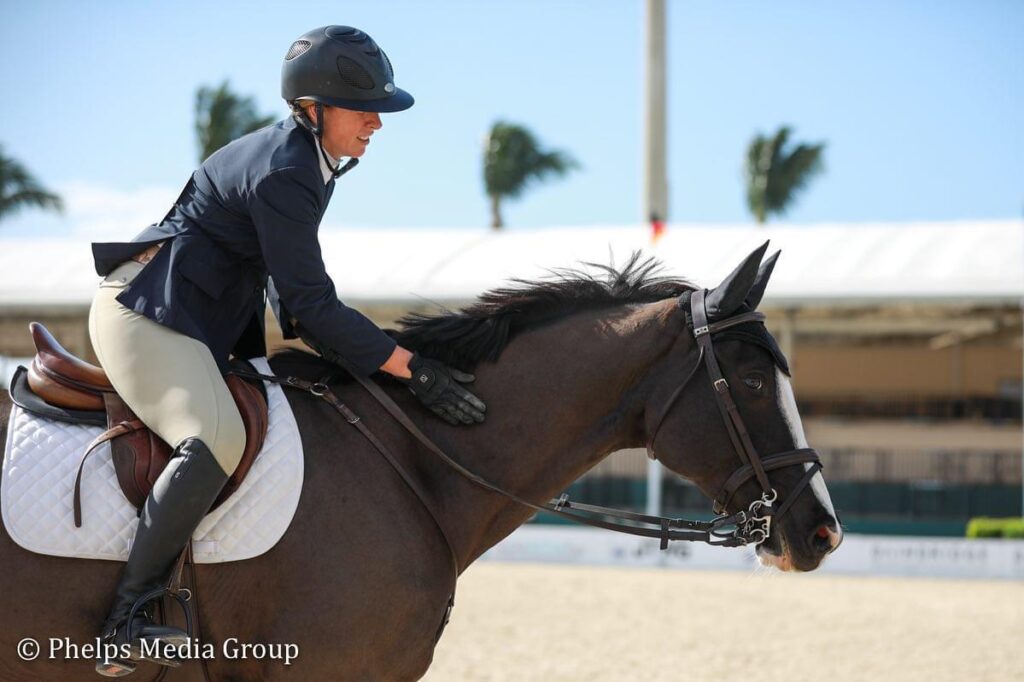I started my grooming career formally in 2008; but in retrospect, I had been grooming as a part time job in college, and I had been taking care of my own horses as a junior equestrian. I’m also part of a family that loved and raised horses. When I was growing up, part of my parent’s reasoning for us to having horses was that taking care of them would give me a sense of meaningful responsibility, an awareness of time and a sense of self-confidence based on my successes with my horses being my own. All those lessons were learned and have served me in every step I have taken since then.
The Job Journey
When I started grooming professionally, I did it as a job that I would “only do while I was waiting for something else to come up.” I was unable to get a job after college with an art history degree and desperately did not want to go back to graduate school like so many of my peers. Throughout my time as a groom, I was always looking for the next step and the right place to land but those jobs outside the horse world, thankfully, did not materialize.
In some ways, what I learned as a groom, barn manager and veterinary technician has helped me to navigate to the job that I have now (which I love). Ultimately, I believe that I was never considered for the jobs I applied to outside of the horse world because the resumes that I wrote did not adequately translate the skills I had with the jobs that I wanted and believed that I was qualified to do.
The Problem
I believe that the problem I faced is a very common problem in our industry and is a roadblock for many grooms or equine professionals. If you are looking at a “normal” job, it is very hard for hiring managers to look at your resume that is filled with serious accomplishments from barns or veterinarians or other equine businesses and think that you have not done much more than play with horses for a living. This is unfair and untrue, but you cannot fault their perspective. Given how small our sport is, it is hard for people to understand the logistics and skills required to keep these exceptionally large and extremely sensitive animals alive, let alone in top form!

As I pursued my own career and climbed the ladder that became available to me, I started to think critically about how poorly equestrian professionals represent ourselves and our skills.
The following recommendations are my take on how to critically analyze what you do every day as a groom or a barn manager and how to translate that on a resume for when you are ready to take your next steps. As a hiring manager myself, the following points are important to me for different reasons and help to make a candidate stand out above the crowd.
1. Time Management
A big part of doing any type of work is being able to prioritize tasks and manage your time over the course of a business day, week, month and fiscal year. Productivity is generally tracked by the things that get done, and time is money! As a groom, from the second you wake up until the time you finish night check, you have planned out every task for the day for your horses and riders.
What Managing Horses Says About You
If you are good at your job, you consistently feed at the same time, make space for your horses to get ready without stress, get exercised and put away properly, plan for the following day and put everyone to bed to do it again tomorrow. THAT IS A LOT! If you can manage several horses or a barn full of clients in that way, you are an asset to any business because it means that you will be able to prioritize tasks given to you and complete them on time. It also means that you can think in advance and potentially see issues that may arise before a manager becomes aware of them. A good manager will value that in an employee because it will help their team rise to be productive and proactive, rather than reactive.

But wait! There’s so much more!
Lenore Brown’s article on helping you translate your equestrian skills to the greater job market continues on the HorseGrooms Community. Don’t miss a thing and log onto the HorseGrooms Community.


